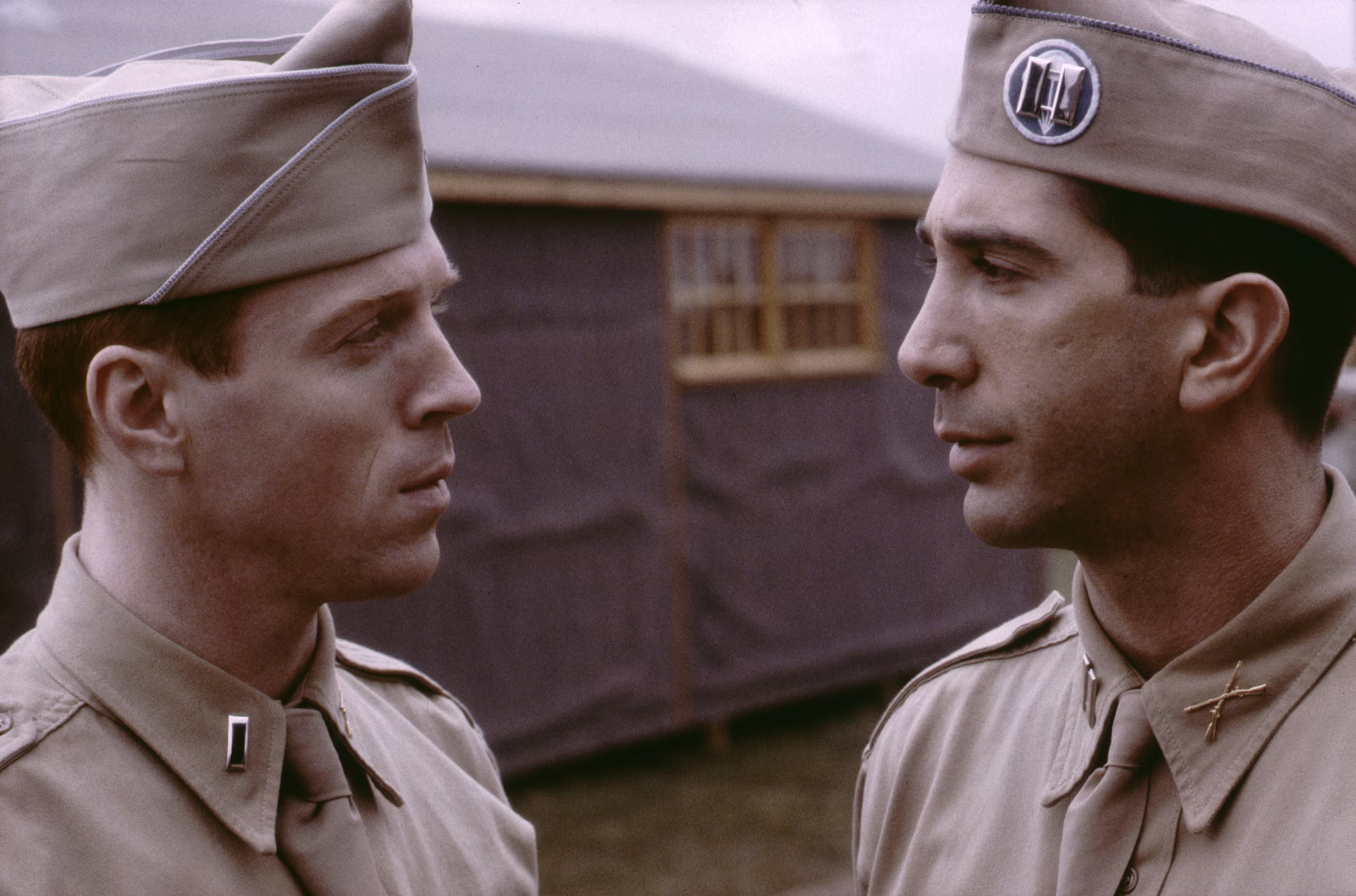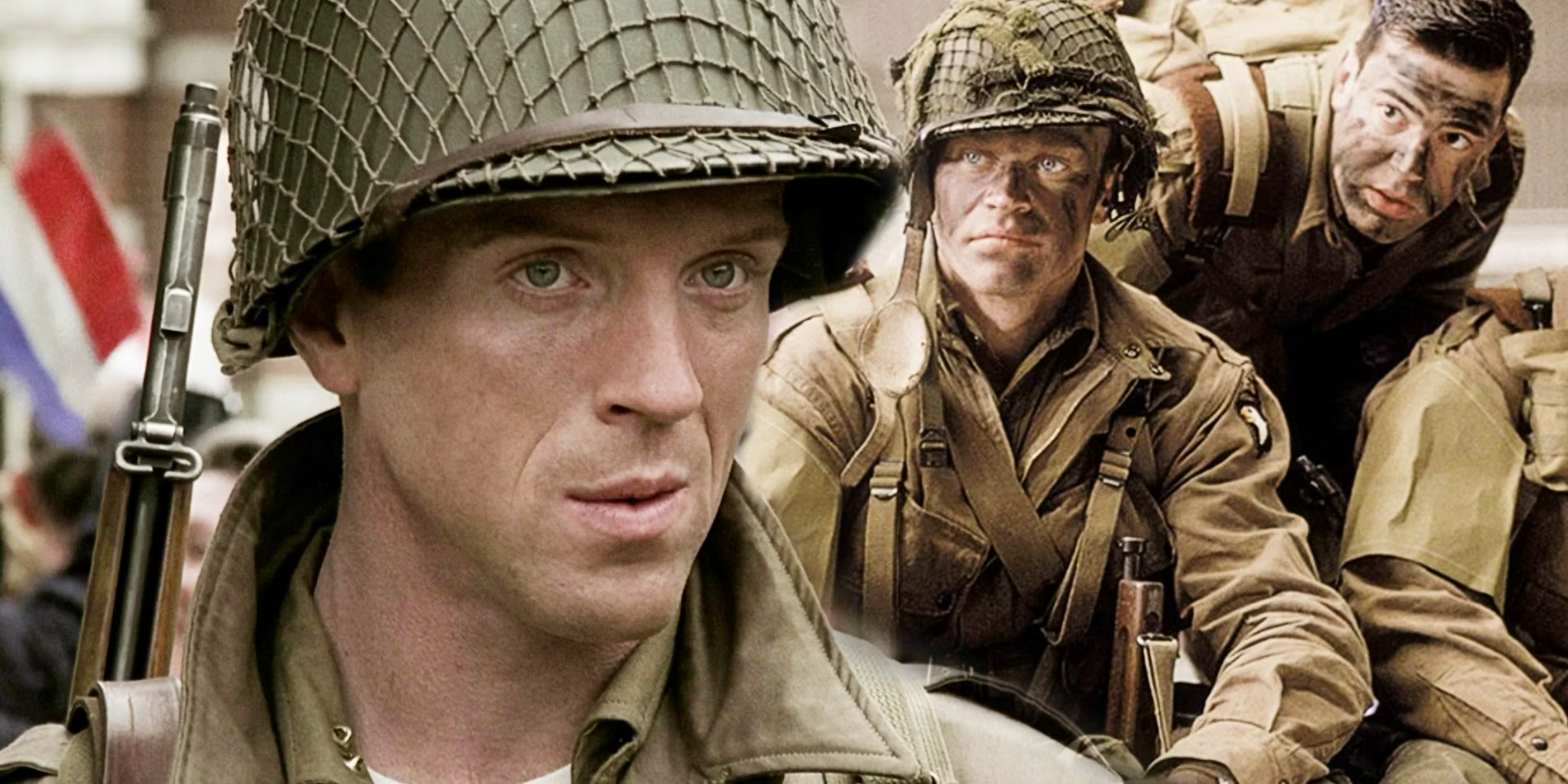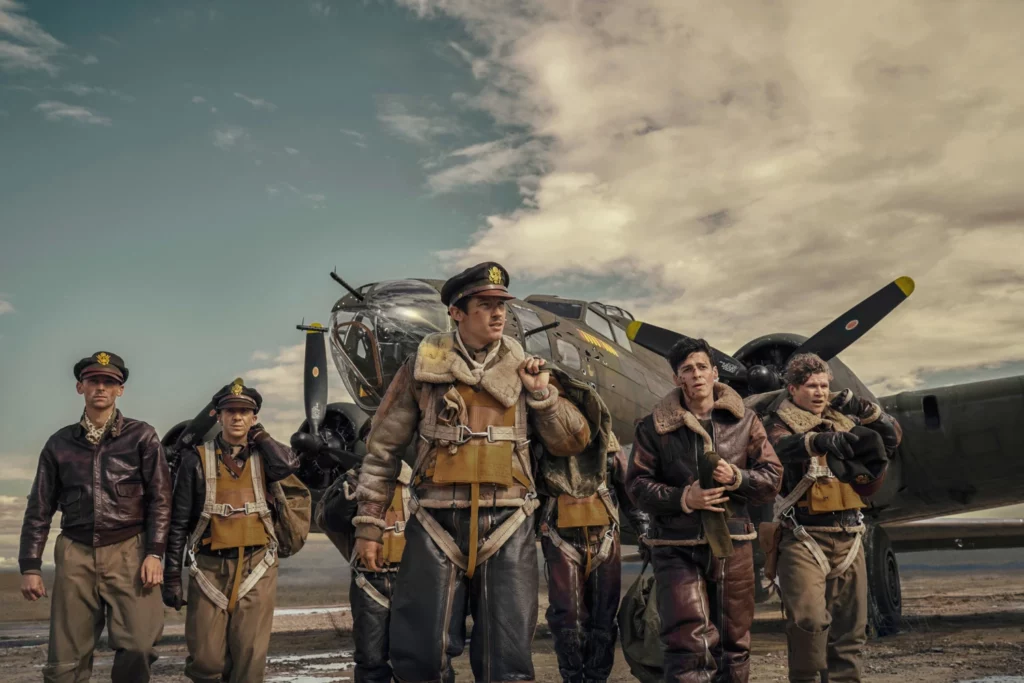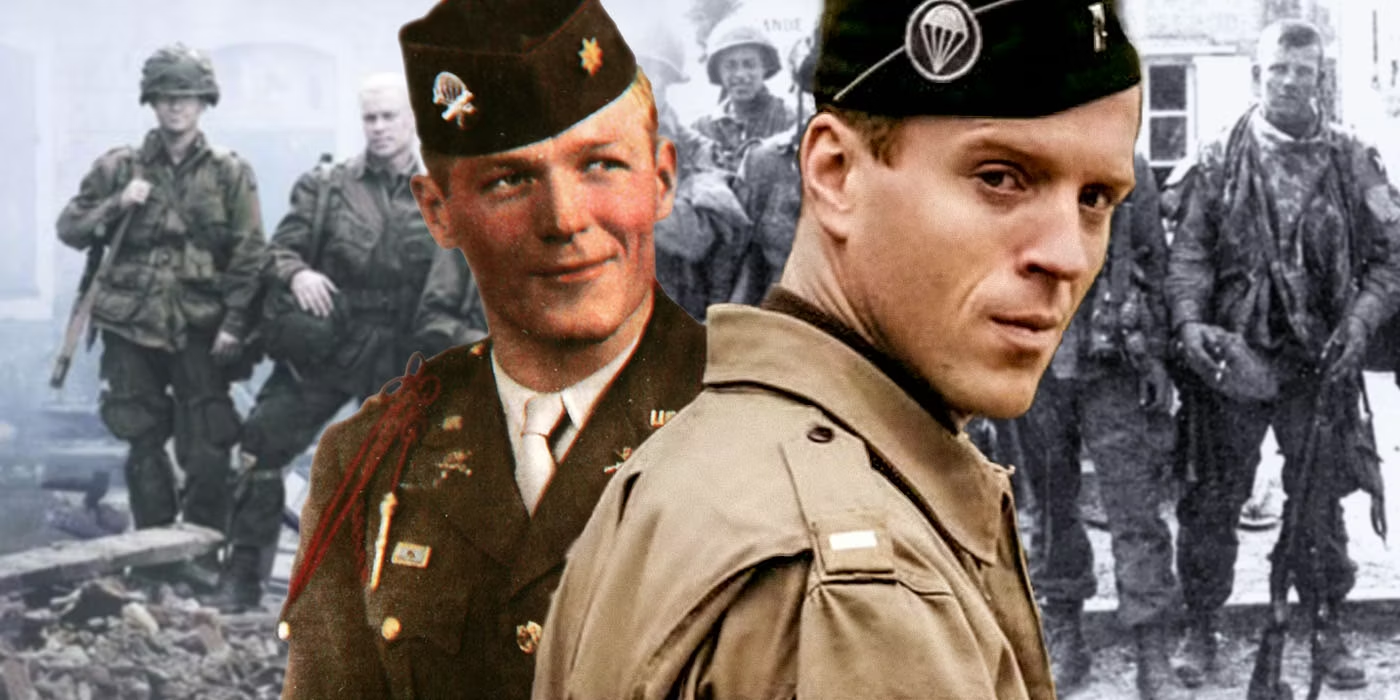Tom Hanks, revered as the ‘Dad of America’ for his roles in films like Forrest Gump and Toy Story, is known for a charisma that feels both genuine and endearing. Beyond his on-screen persona, Hanks also ventured into production, teaming up with Steven Spielberg for the highly acclaimed miniseries Band of Brothers, a project that showcased not just his love for cinematic excellence but also his passion for historical accuracy.
However, amidst the backdrop of World War II drama and critical accolades, a fascinating dynamic unfolded off-screen. Hanks, despite his overwhelming charm, encountered a formidable presence in Major Dick Winters, the real-life figure upon whom the series was based. As Hanks once described, Winters had “that visage, that look could pierce a tank.” This complex relationship between producer and protagonist added a layer of authenticity to the series that perhaps no other interaction could.

A Complicated Hero: Major Dick Winters’ Influence on Band of Brothers
Major Dick Winters, celebrated for his leadership during WWII and immortalized by Band of Brothers, was known for his stringent adherence to the truth. His insistence on accuracy influenced not only the narrative of the series but also the portrayal of the events and characters within it. According to friends and those who knew him, Winters was unimpressed by Hollywood glamour, treating Hanks no differently than any other person, despite Hanks’ dual Oscar-winner status.
This insistence on realism from Winters provided a grounding effect on the production. It ensured that the series, while dramatized for television, did not stray far from the realities of war. This approach resonated with audiences and critics alike, contributing to the series’ success and enduring legacy.

The Challenge of Portrayal and the Triumph of Authenticity
While the series was a collaborative effort, it was Hanks’ encounter with Winters that perhaps most significantly shaped its development. Winters’ forthright nature and deep-seated integrity forced Hanks and the team to approach the project with a level of sincerity and rigor that became the hallmark of Band of Brothers. The late veteran, while initially reserved and critical, eventually expressed approval of the series, particularly praising the documentary segments that captured the essence of soldiers’ experiences during the war.
Winters once reflected on the young soldiers depicted in the series, noting, “You’re talking about young kids, 19 or 20 years old. They were not an age to be philosophers or deep thinkers. But by working together, facing the hardships of war, being under fire together, they became better. They developed character, and character helps build society.” This acknowledgment from Winters underscored the series’ success in capturing the transformative impact of war on those who lived it.

The Legacy of Band of Brothers and the Shadows of History
The interaction between Tom Hanks and Major Dick Winters during the creation of Band of Brothers offers more than just a behind-the-scenes anecdote; it provides a window into the complex interplay between historical authenticity and cinematic storytelling. As Hanks navigated the challenge of satisfying a war hero’s stringent standards, the series benefited immeasurably, gaining a depth and realism that might otherwise have been absent.
In the end, the legacy of Band of Brothers is not just that of a successful WWII series but also a testament to the integrity and complexity of its subjects, both in front of the camera and behind it. It stands as a tribute to the uncompromising spirit of Major Dick Winters, whose influence ensured that the series was as much about historical truth as it was about dramatic portrayal.

